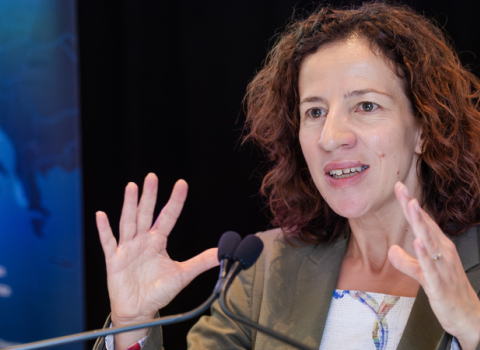EU’s €26B education programme is to be evaluated next year. As ever, there are calls for less bureaucracy, while students want more involvement in decision-making

The European Commission is asking for feedback on the first half of the €26.2 billion Erasmus+ as it gears up for a large-scale review of the EU education programme.
The review, due in the last quarter of 2024, will evaluate how well the first half of the current programme went and deliver the final ruling on the previous seven-year programme that ran from 2014 - 2020.
The Commission wants to assess reactions to various new elements introduced to the programme following the decision by EU policymakers to nearly double the budget from €14.7 billion in 2014 -2020, to €26 billion in the current scheme. These include the European Universities Initiative, which aims to support 60 cross-border university alliances by mid-2024.
The current programme was planned to be a major upgrade on what went before, with the bigger budget boosting inclusiveness, digital learning and its green credentials, while retaining the same priorities: 70% of the money goes to student mobility, with the rest invested in cross-border cooperation projects between universities, schools, teacher training colleges and adult learning centres. It’s an EU fund but it is mostly managed by member states.
There was a rocky start in 2021 after drawn out EU budget negotiations delayed the first calls. The budget for that year was smaller than anticipated with only €705 million allocated, down from €930 million in 2020. With student exchanges then returning to pre-pandemic levels, the lack of funds was a major stumbling block for many universities.
Despite the slow start, most stakeholders are happy with the education programme. A survey conducted by the European University Association (EUA) last year found 99% of higher education institutions believed Erasmus+ offers good mobility and cooperation opportunities.
However, they do see room for improvement, with the Netherlands house for Education and Research (Neth-ER), for example, hoping to see more cooperation projects, like the European Universities initiative, without dipping into the budget for mobility. For this, the budget must increase – and Neth-ER believes it needs to double again.
Another priority is having clearer frameworks and guidelines for delivering on the various Erasmus+ goals, including taking a more strategic approach to incentivising ‘green’ travel and sustainability, and how the programme contributes to EU strategic autonomy goals.
Include students in decision-making
And as ever, bureaucracy is an issue. “Simplification, including eliminating grant distinctions, addressing digital infrastructure issues, and accrediting entire consortia, can alleviate the burden,” according to Neth-ER’s statement on the programme.
The students have been vocal about the changes needed too. The Erasmus Student Network (ESN) published feedback for the European Parliament in July, suggesting changes to how grant payments are made to students. ESN also wants to see measures that encourage inclusivity and an overhaul of the governance system, to include students and alumni representatives in more decision-making processes.
There’s also a specific demand to upgrade the European Universities initiative, with ESN hoping to see the alliances given more firepower by advancing pan-EU recognition of degrees, making education more flexible.
The public consultation is due to close on 8 December. The responses will feed into the Commission’s evaluation, along with initial feedback from last year as well as various surveys, interviews, case studies and data analyses. The evaluation will measure the programme’s effectiveness, efficiency, relevance, coherence and EU added-value.





 A unique international forum for public research organisations and companies to connect their external engagement with strategic interests around their R&D system.
A unique international forum for public research organisations and companies to connect their external engagement with strategic interests around their R&D system.